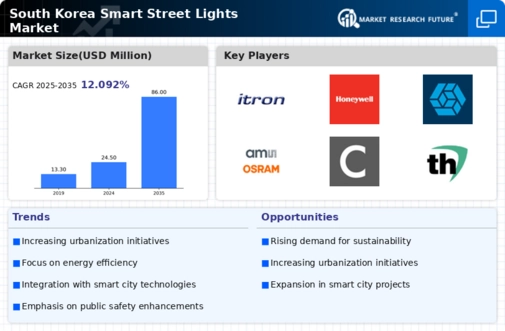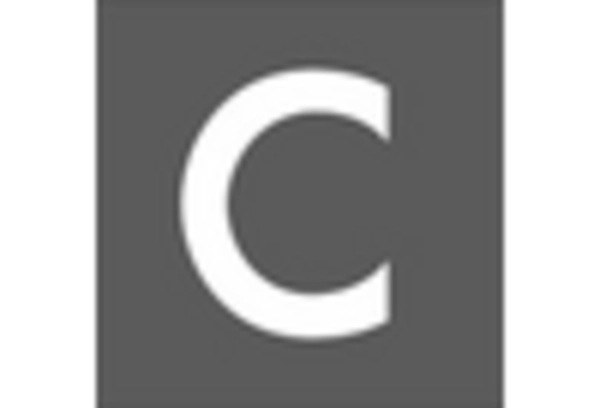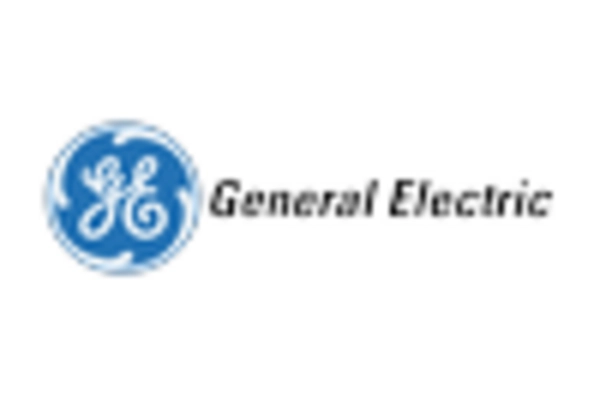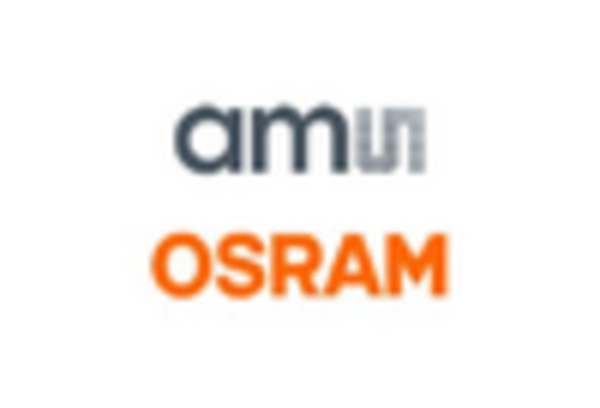Rising Urbanization
Urbanization in South Korea is accelerating, with projections indicating that over 80% of the population will reside in urban areas by 2025. This rapid urban growth necessitates the implementation of advanced infrastructure solutions, including smart street-lights. The smart street-lights market is likely to benefit from this trend, as cities seek to enhance public safety and improve energy management. The integration of smart street-lights can lead to a reduction in energy consumption by up to 50%, which is particularly appealing to urban planners. As cities expand, the demand for efficient lighting solutions that can adapt to changing conditions will likely drive the growth of the smart street-lights market.
Public Safety Concerns
Public safety remains a paramount concern for urban areas in South Korea, driving the demand for smart street-lights. Enhanced lighting solutions are essential for reducing crime rates and improving pedestrian safety. Studies indicate that well-lit streets can decrease crime by up to 20%, making smart street-lights an attractive option for municipalities. The smart street-lights market is likely to see increased adoption as local governments prioritize investments in lighting systems that not only illuminate but also incorporate surveillance and emergency response features. This focus on safety is expected to propel the market forward, as communities seek to create safer environments for residents and visitors alike.
Technological Advancements
Technological advancements are playing a crucial role in shaping the smart street-lights market. Innovations in sensor technology, data analytics, and communication networks are enabling the development of more sophisticated lighting systems. For instance, the incorporation of IoT devices allows for real-time monitoring and control of street-lighting, which can lead to energy savings of approximately 30%. Additionally, the integration of smart street-lights with traffic management systems can enhance urban mobility and reduce congestion. As these technologies continue to evolve, they are expected to create new opportunities for growth within the smart street-lights market, making it a dynamic and competitive industry.
Government Initiatives and Funding
The smart street-lights market is experiencing a boost due to various government initiatives aimed at enhancing urban infrastructure. The South Korean government has allocated substantial funding, estimated at $500 million, for smart city projects, which prominently include smart street-lighting systems. These initiatives are designed to improve energy efficiency and reduce operational costs. Furthermore, the government's commitment to achieving a 30% reduction in greenhouse gas emissions by 2030 aligns with the deployment of smart street-lights, which utilize LED technology and adaptive lighting systems. This funding not only supports the installation of smart street-lights but also encourages research and development in related technologies, thereby fostering innovation within the industry.
Environmental Regulations and Standards
The smart street-lights market is significantly influenced by stringent environmental regulations and standards in South Korea. The government has implemented policies aimed at reducing energy consumption and promoting sustainable practices. For instance, regulations mandating the use of energy-efficient lighting solutions are pushing municipalities to adopt smart street-lights. These systems, which can reduce energy usage by up to 50%, align with national goals for sustainability. Compliance with these regulations not only enhances the appeal of smart street-lights but also positions the industry favorably in the context of environmental stewardship. As regulations evolve, the market is expected to adapt, fostering innovation and growth.















